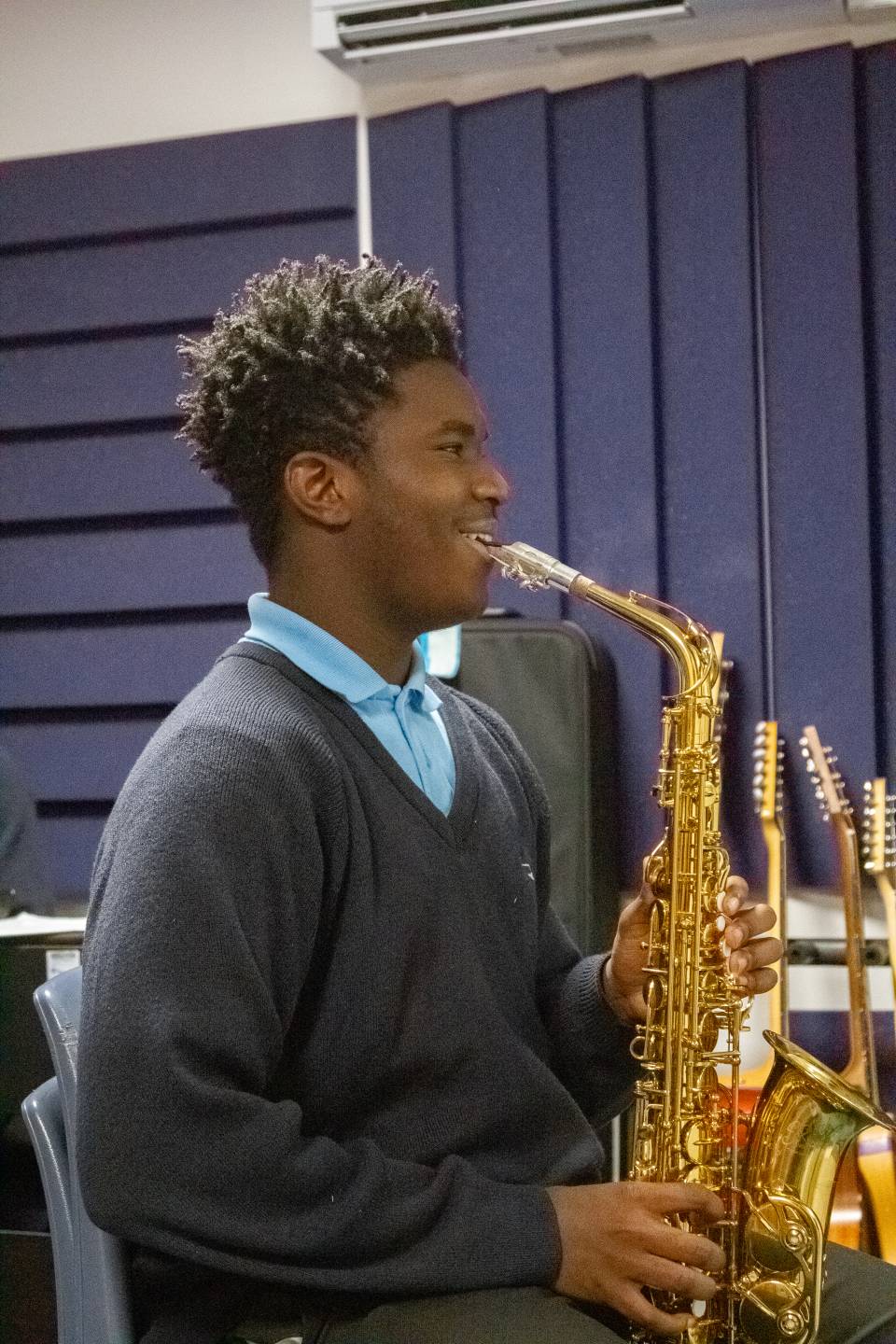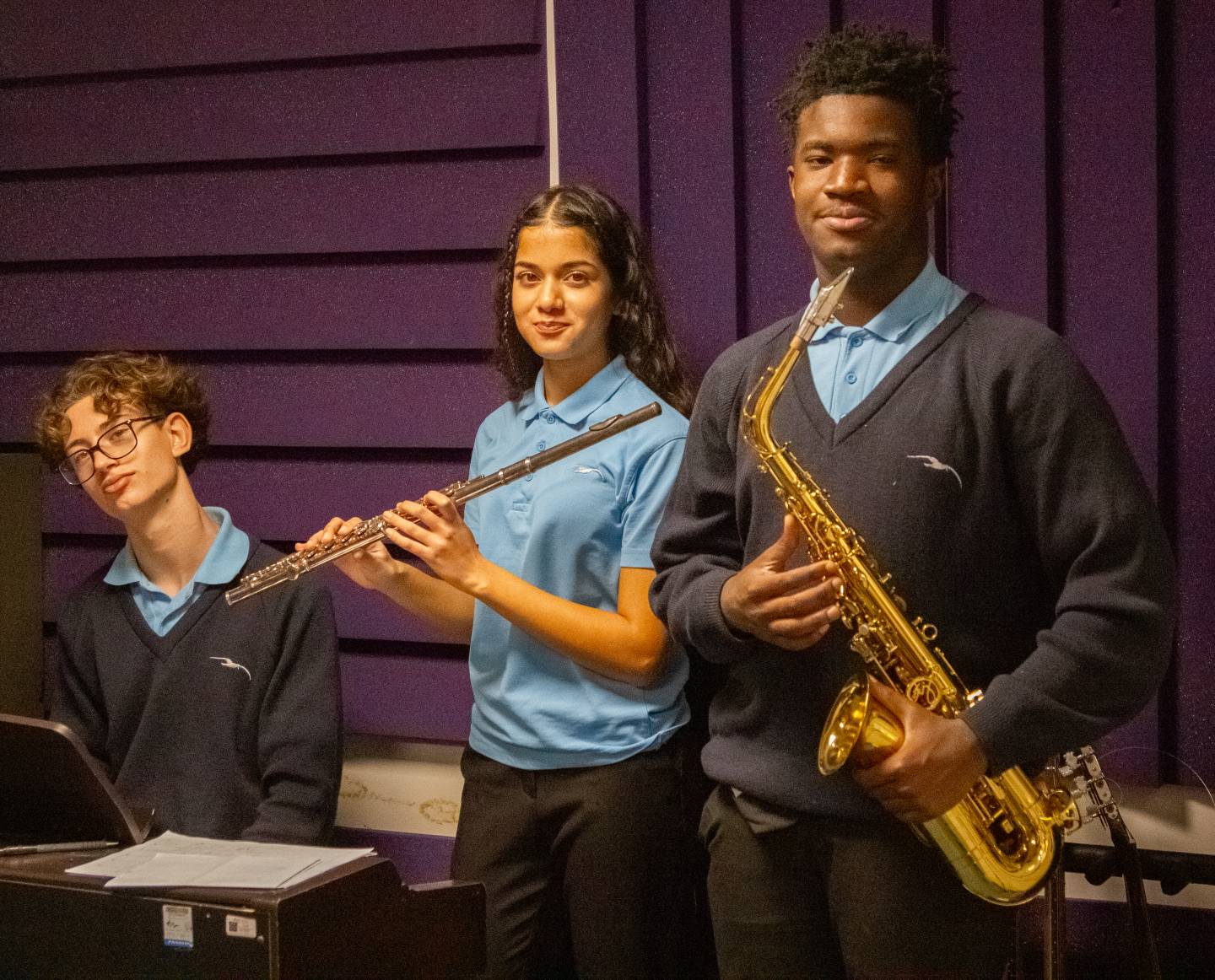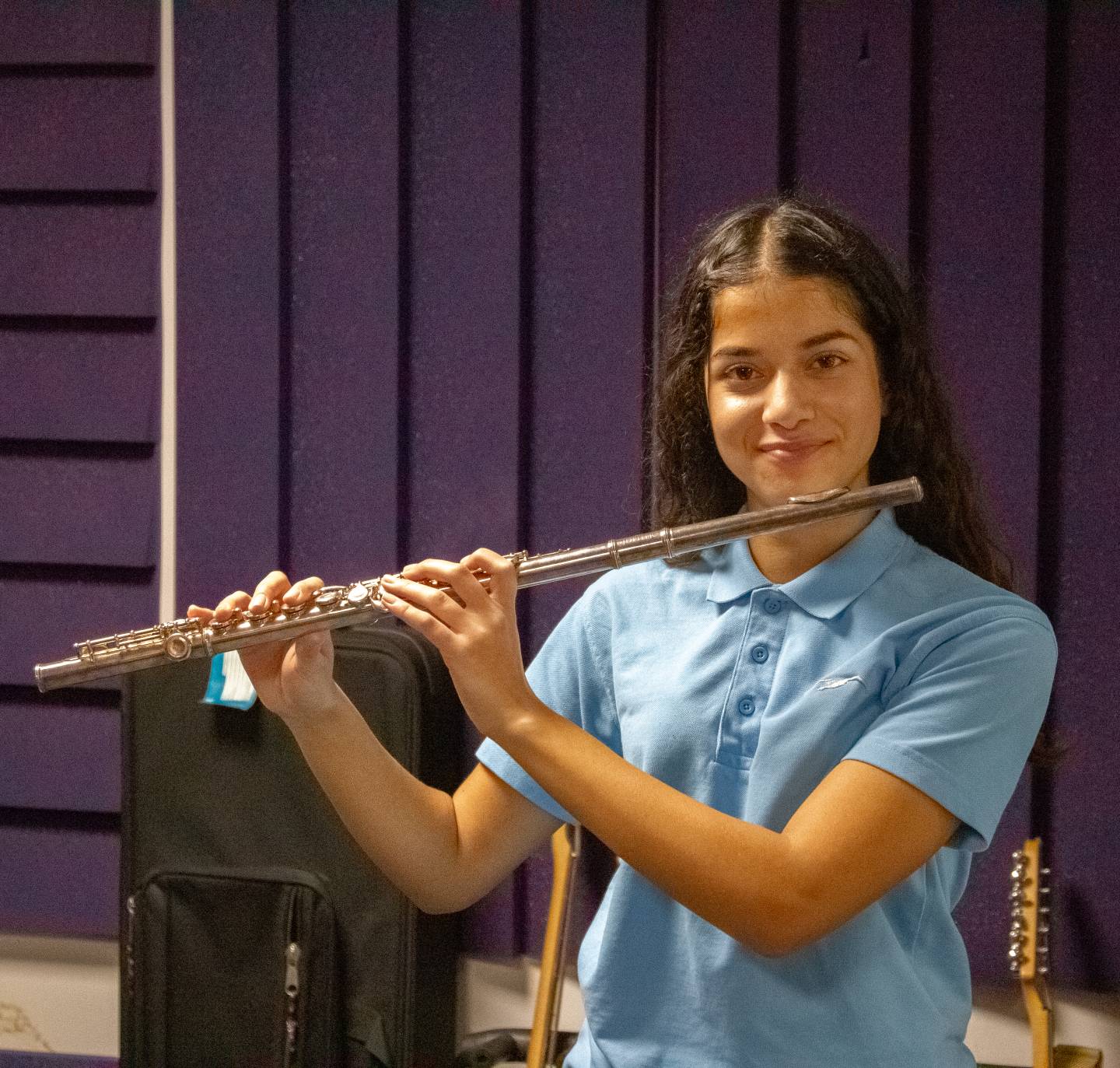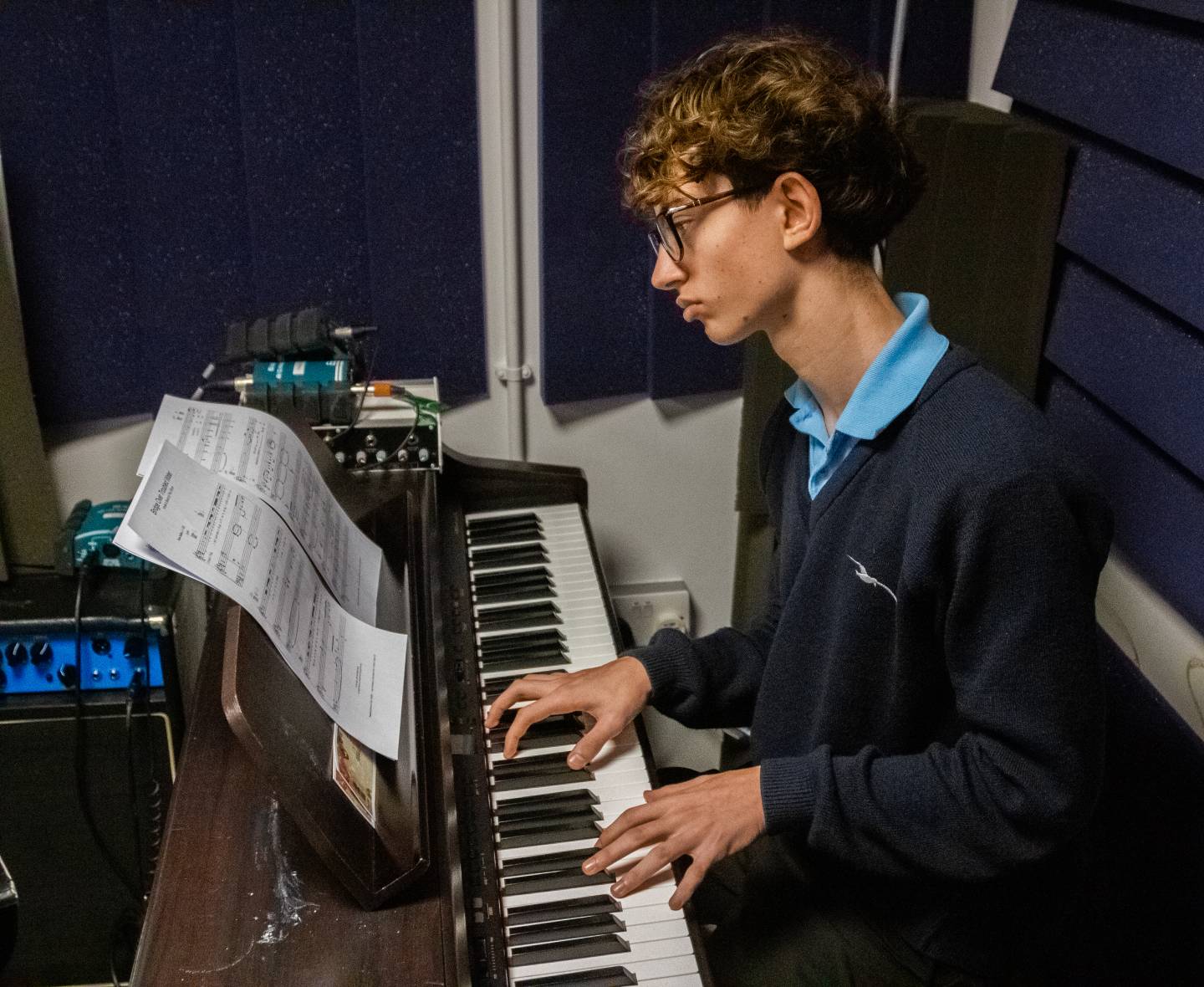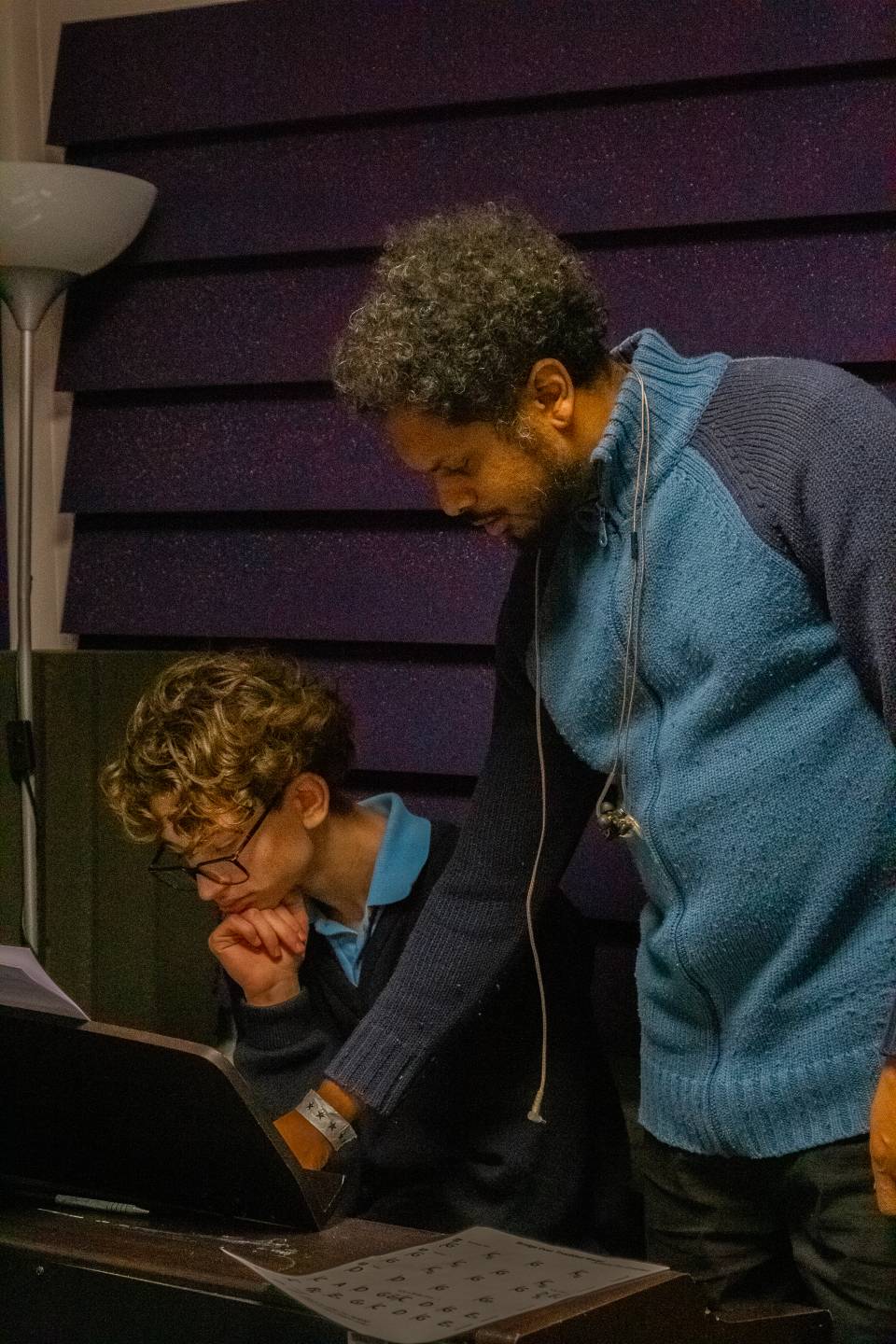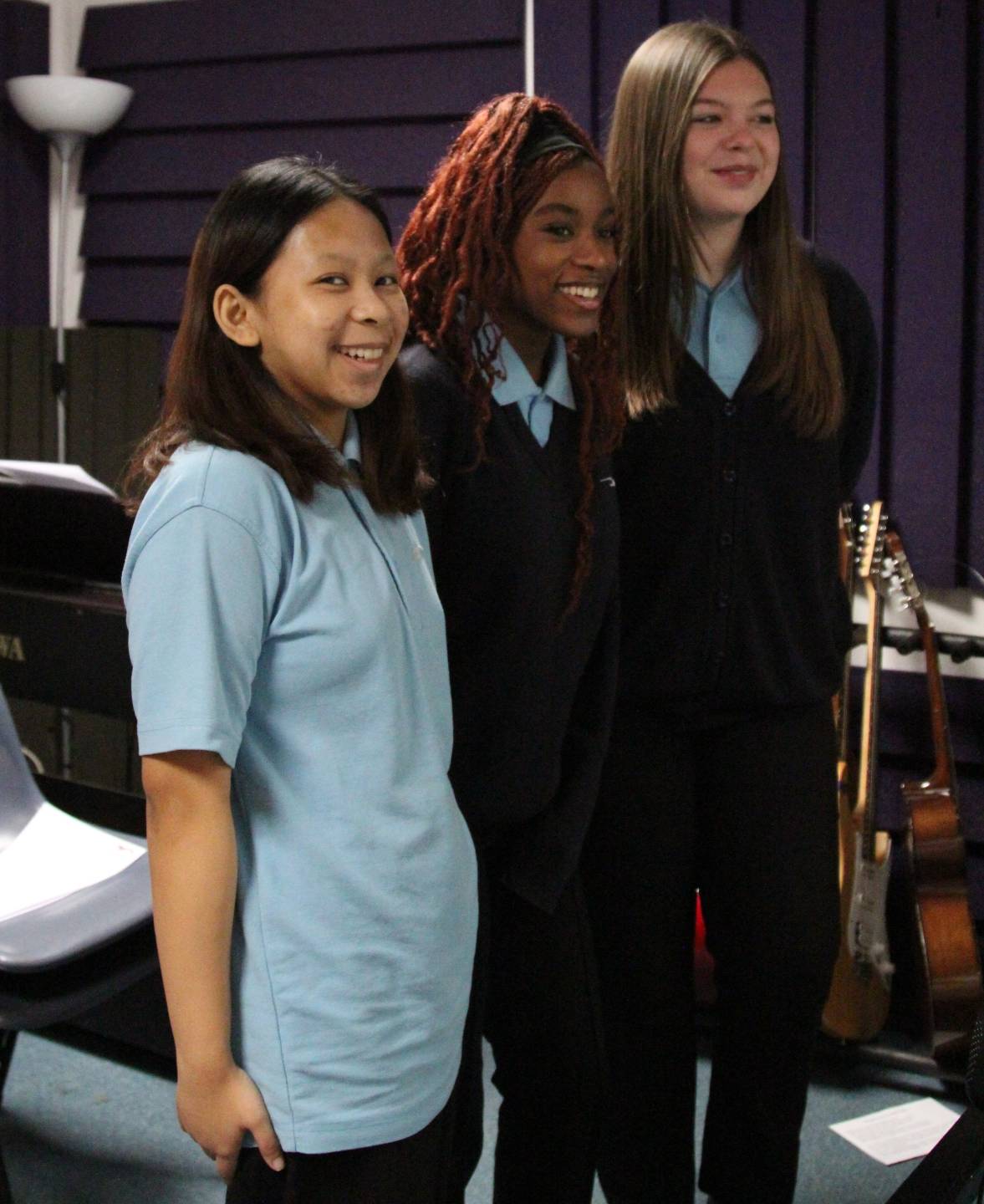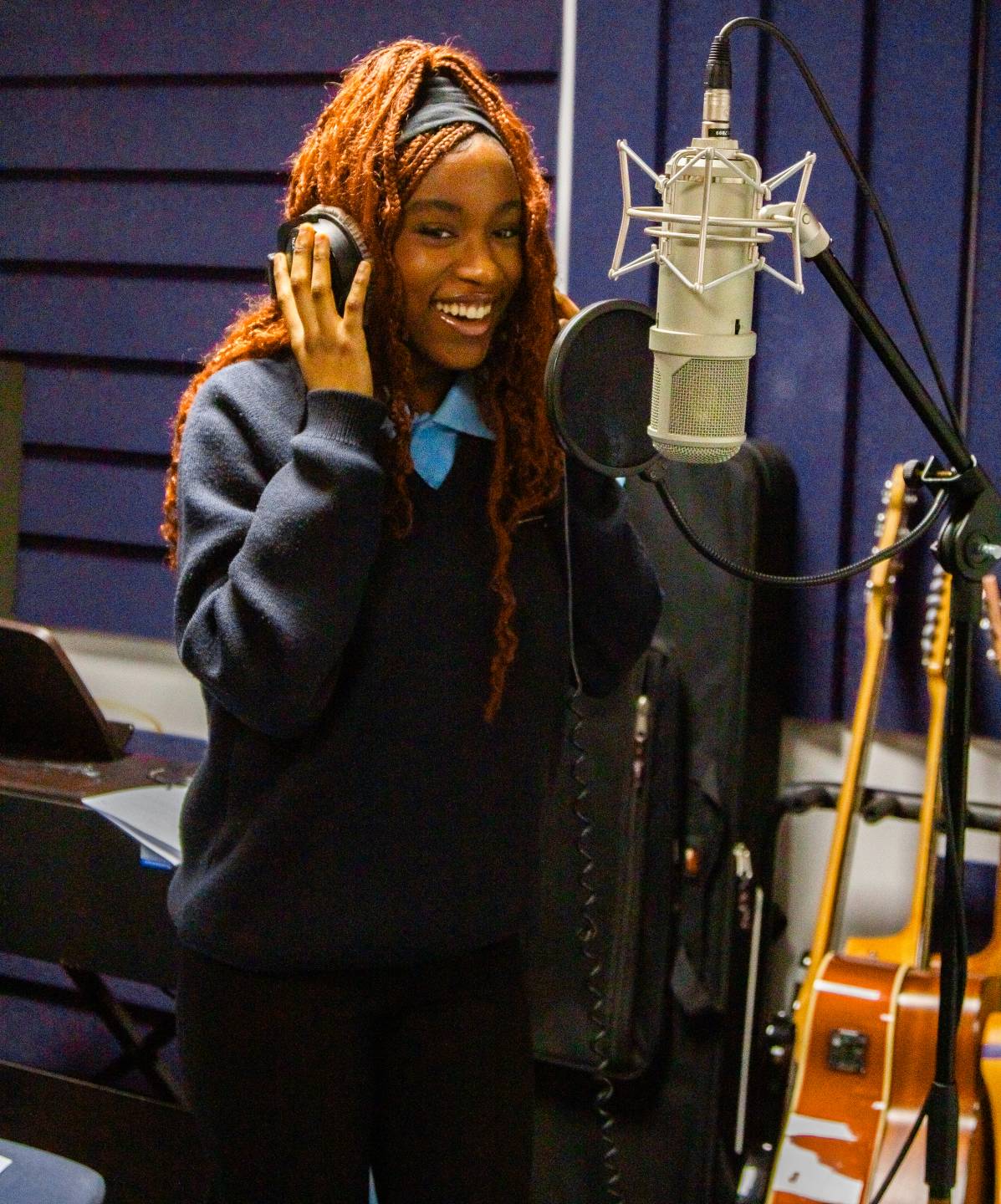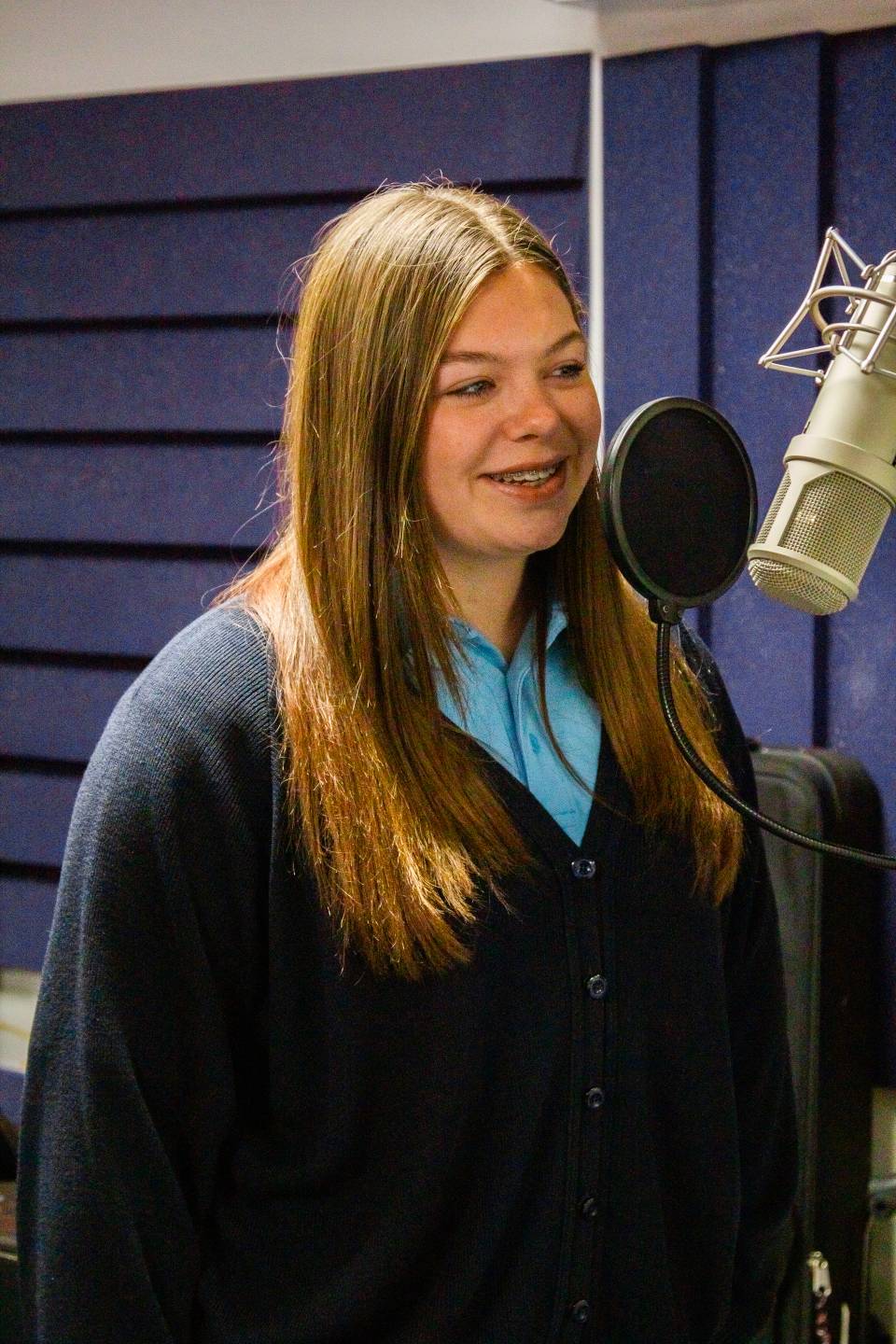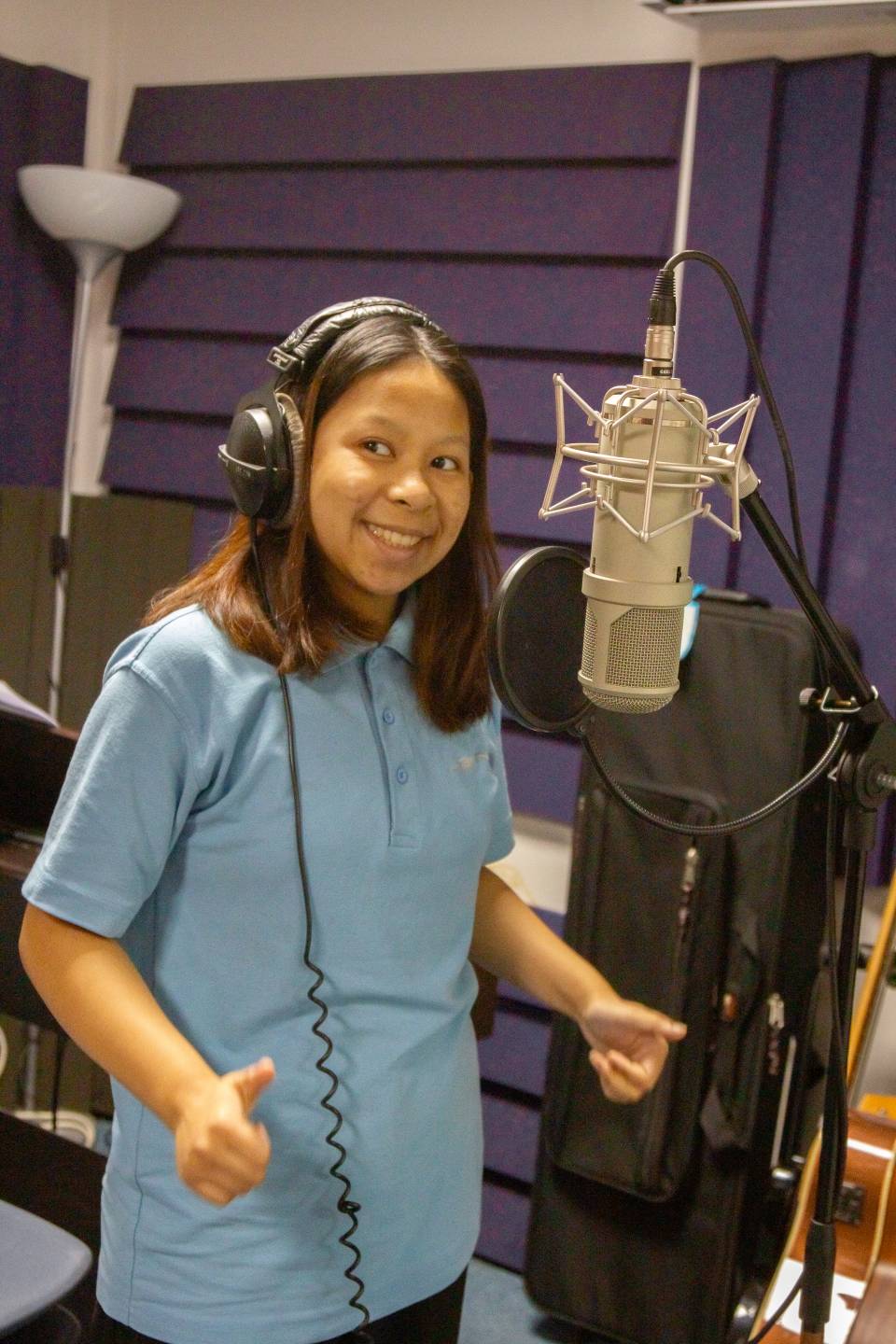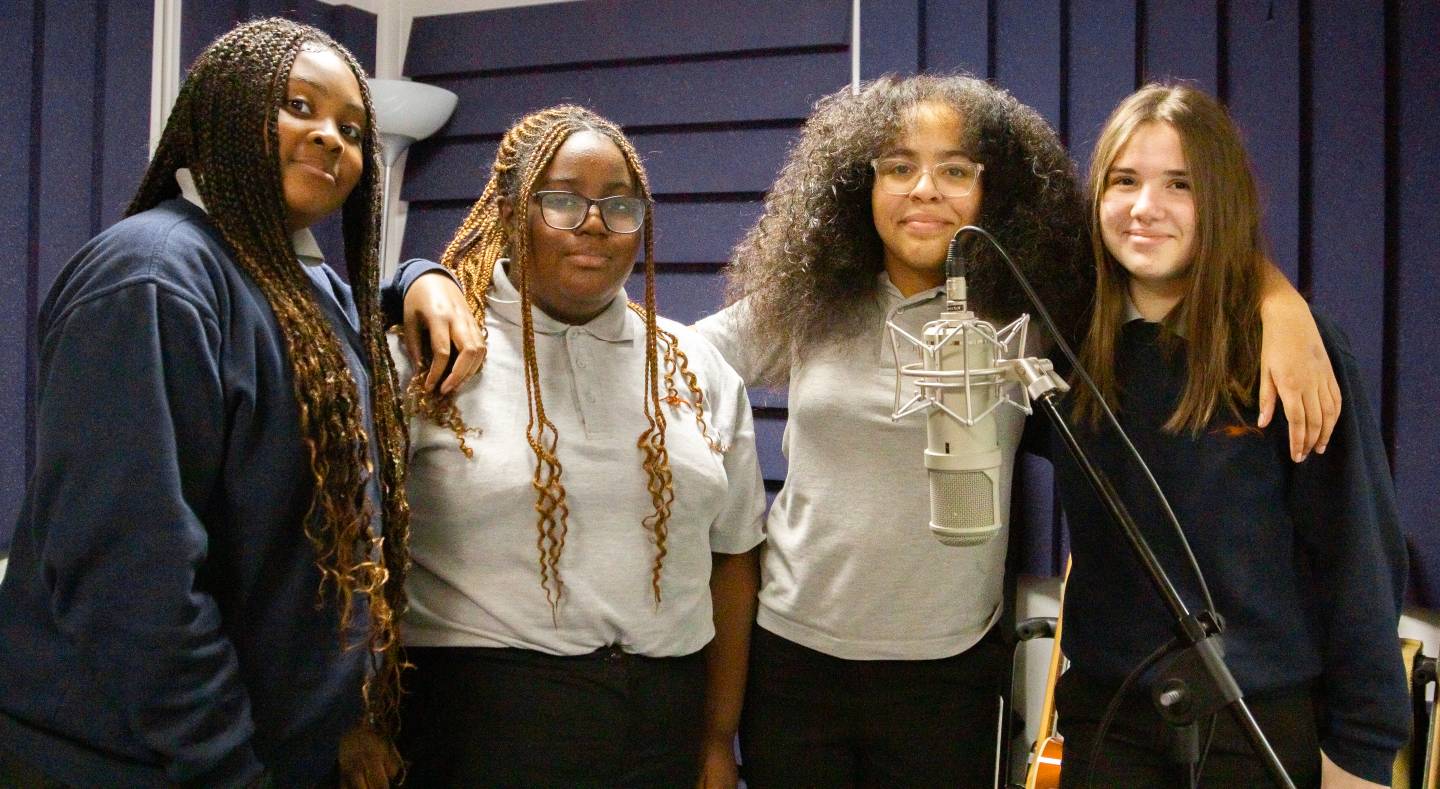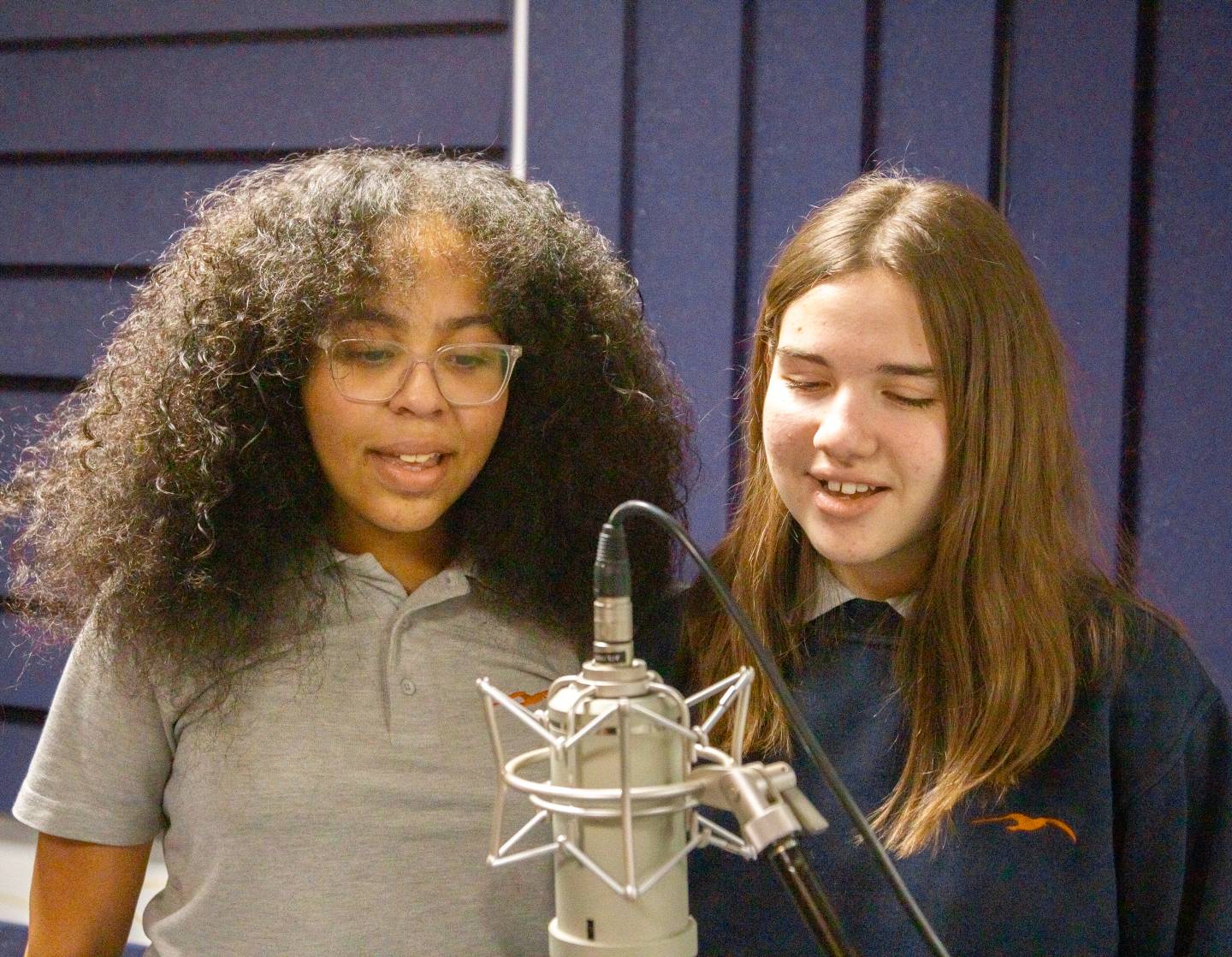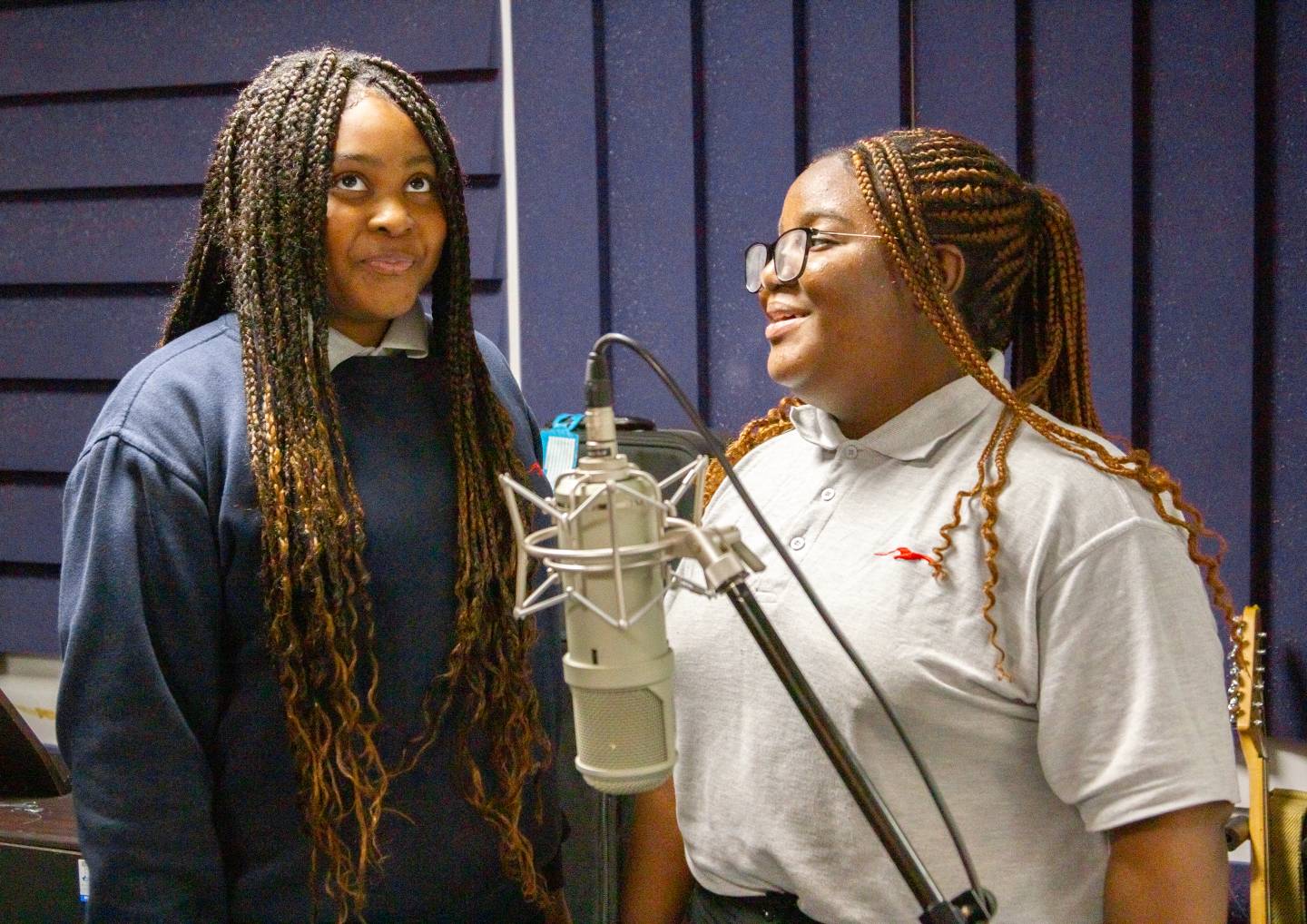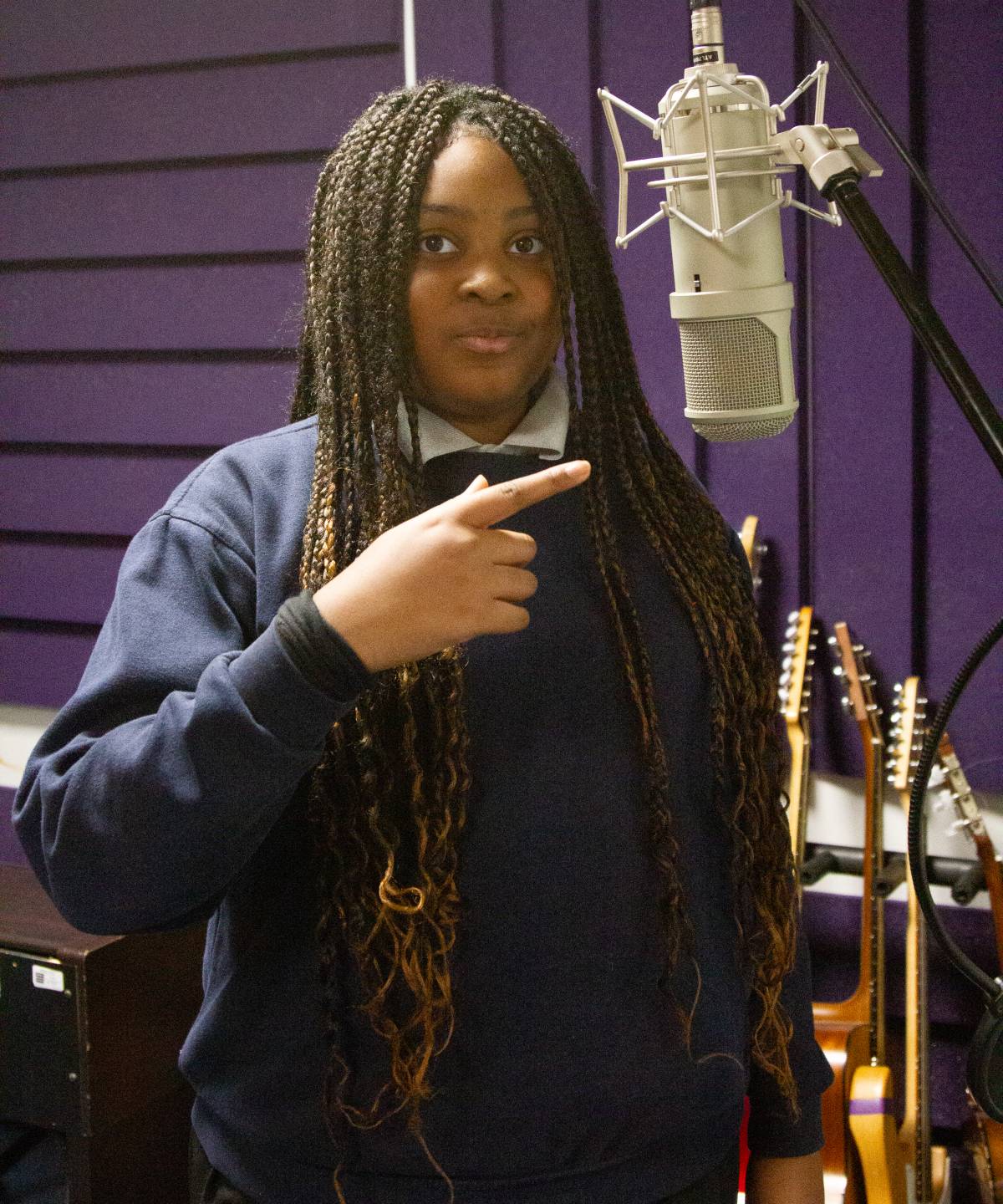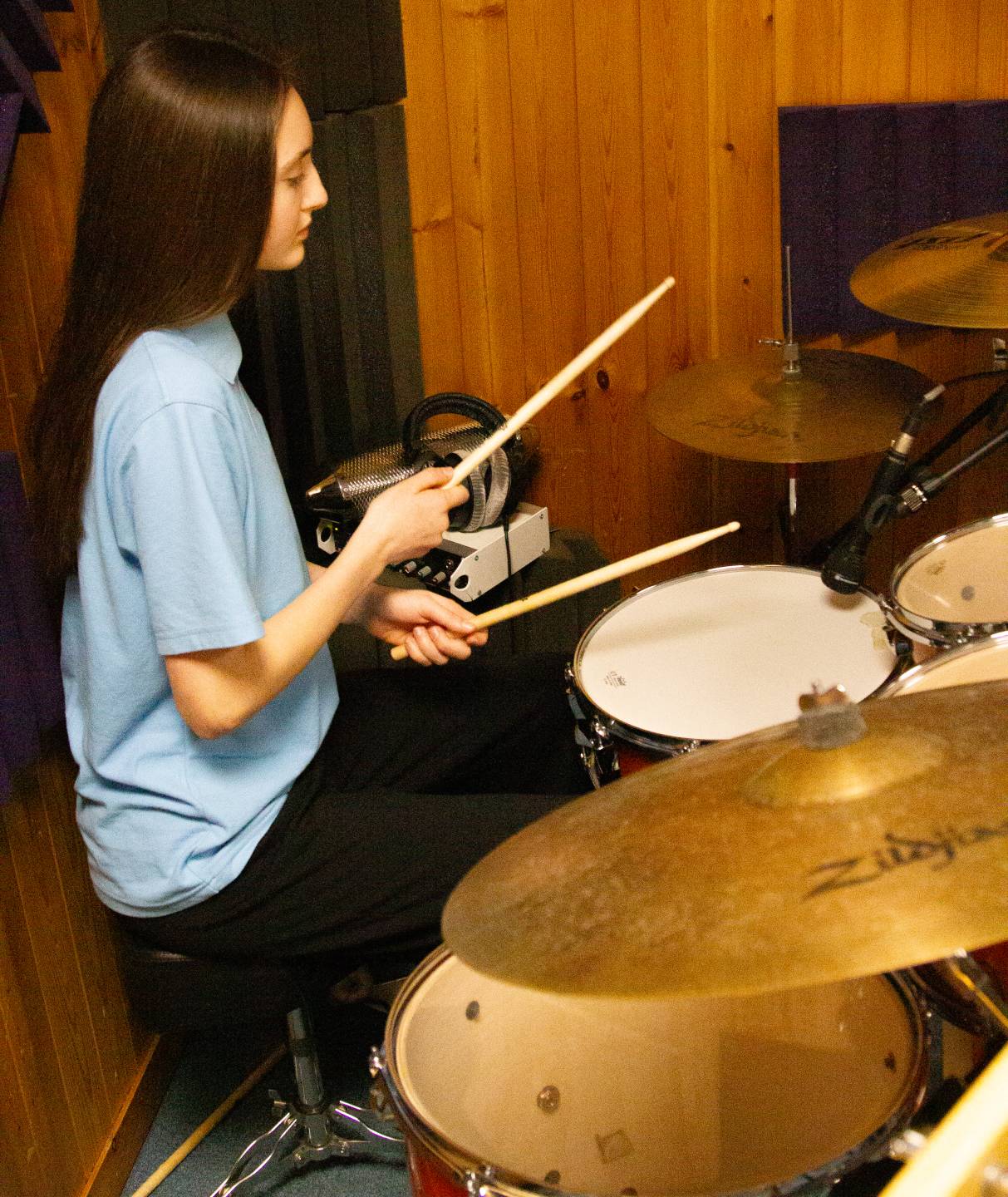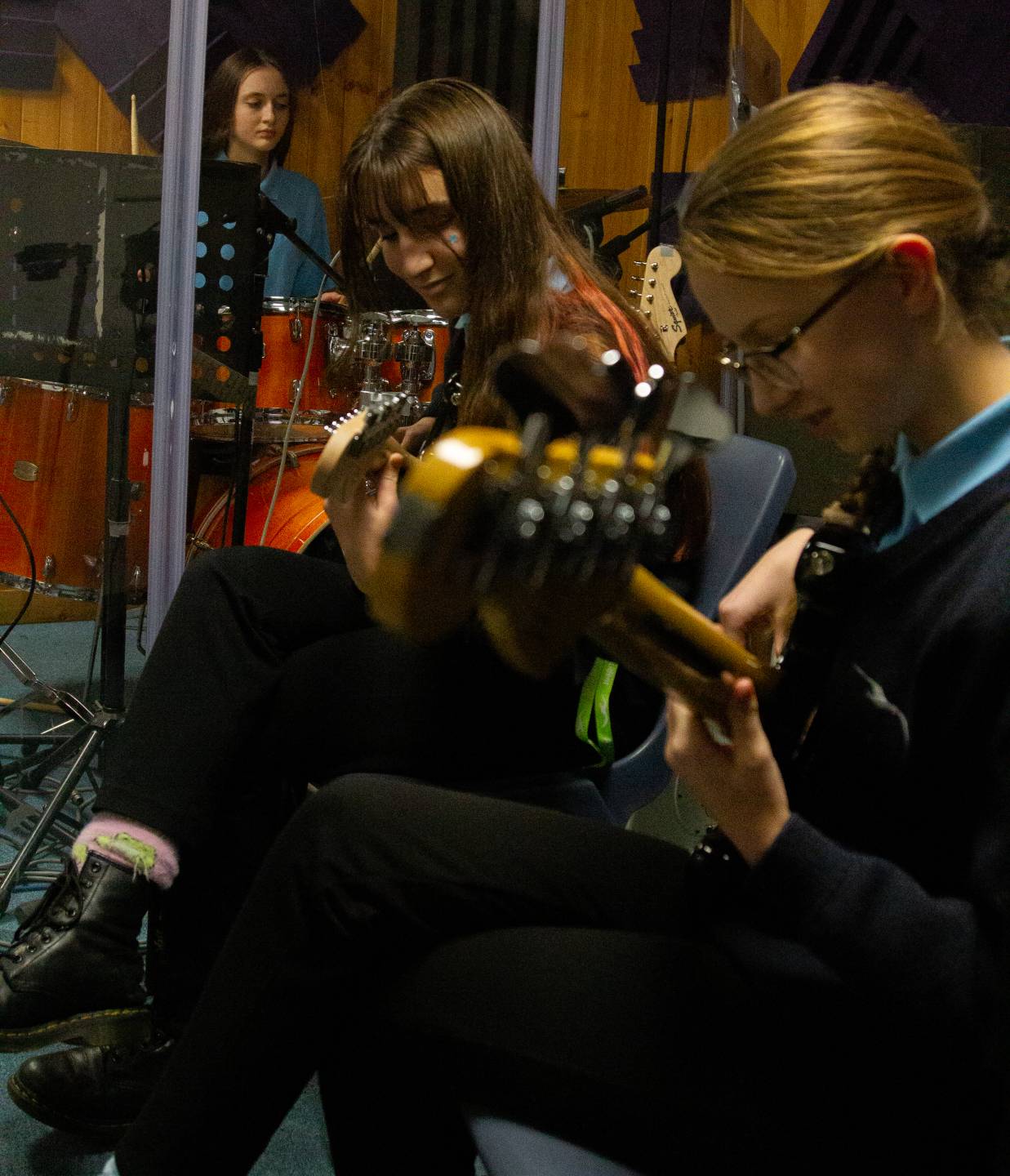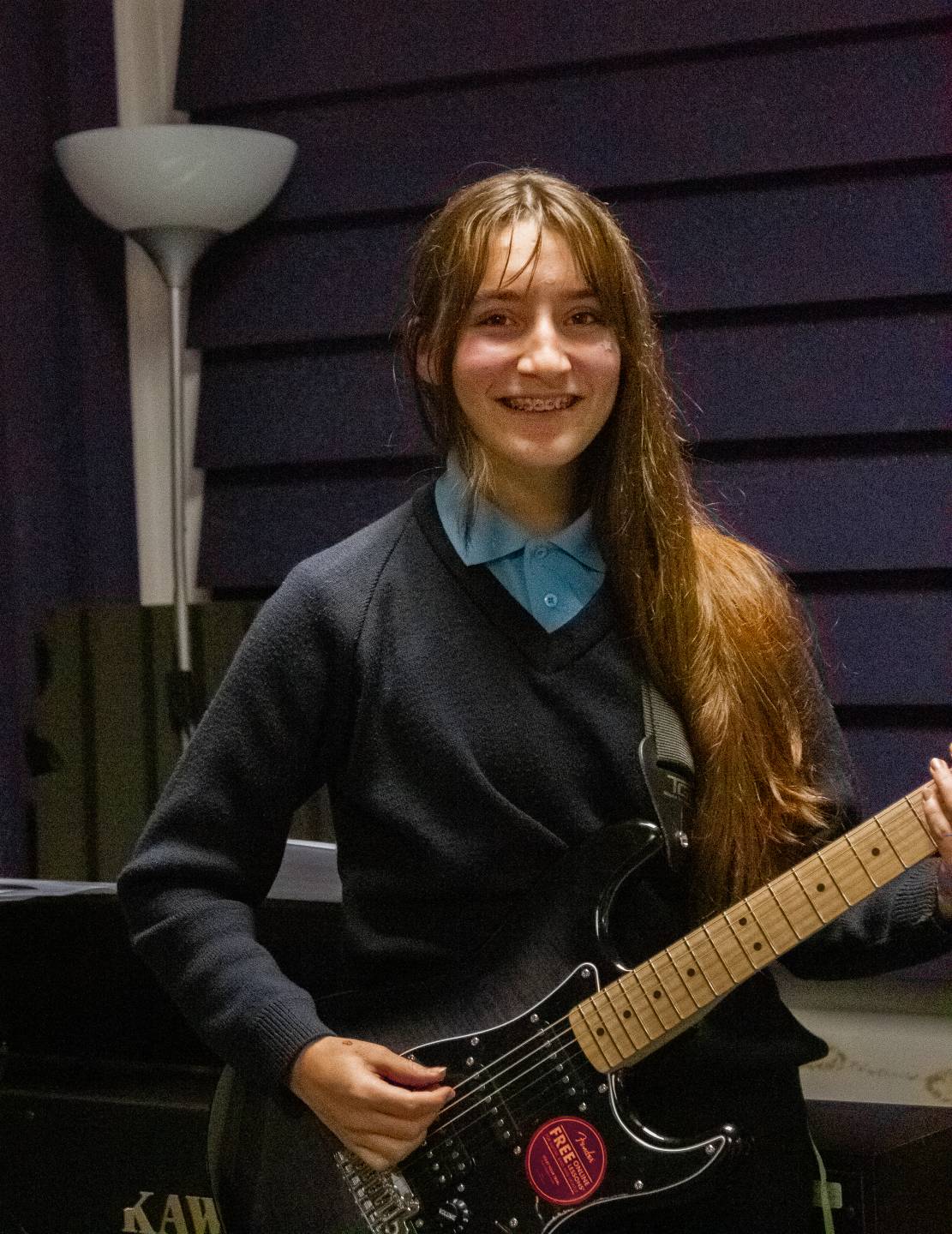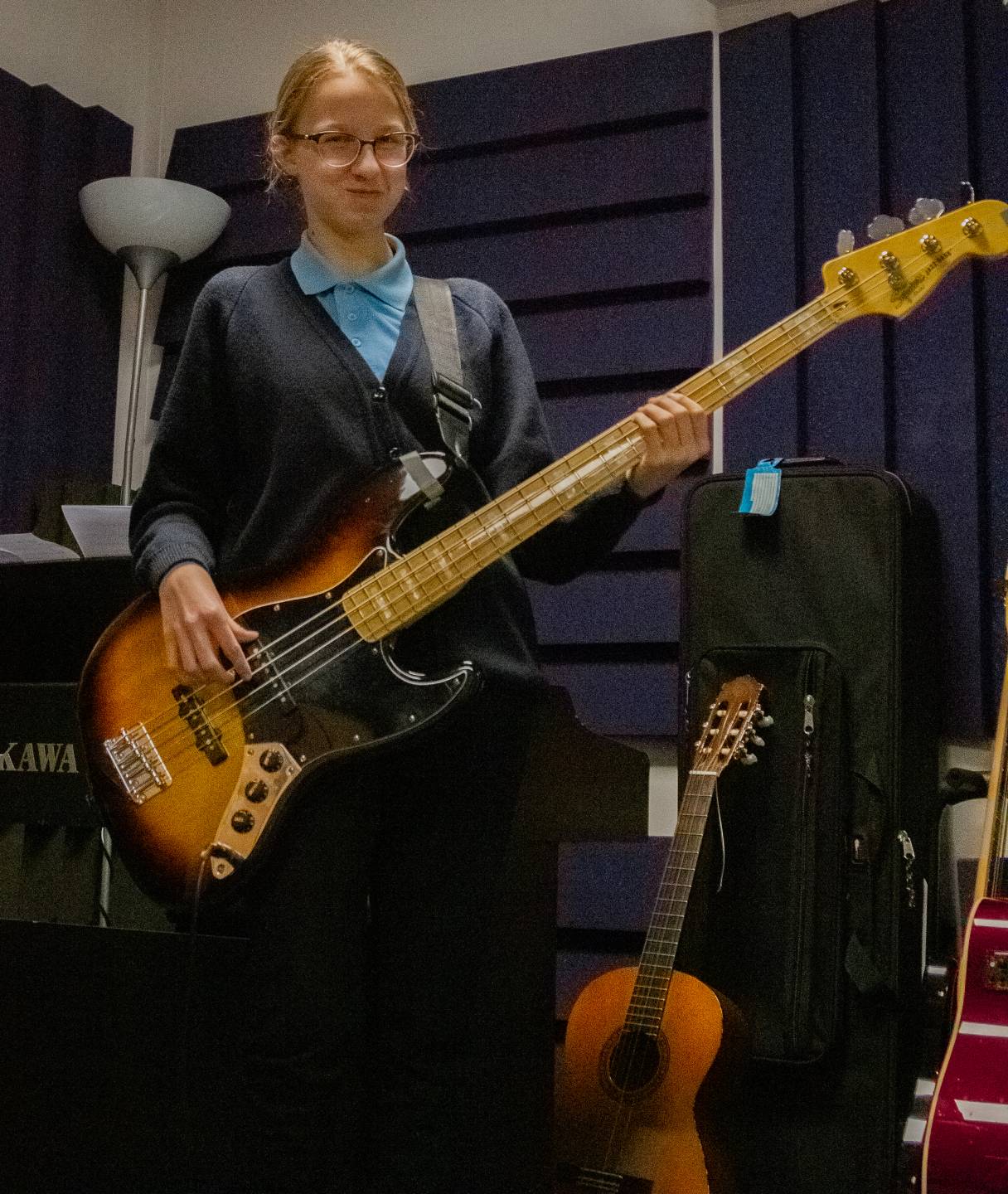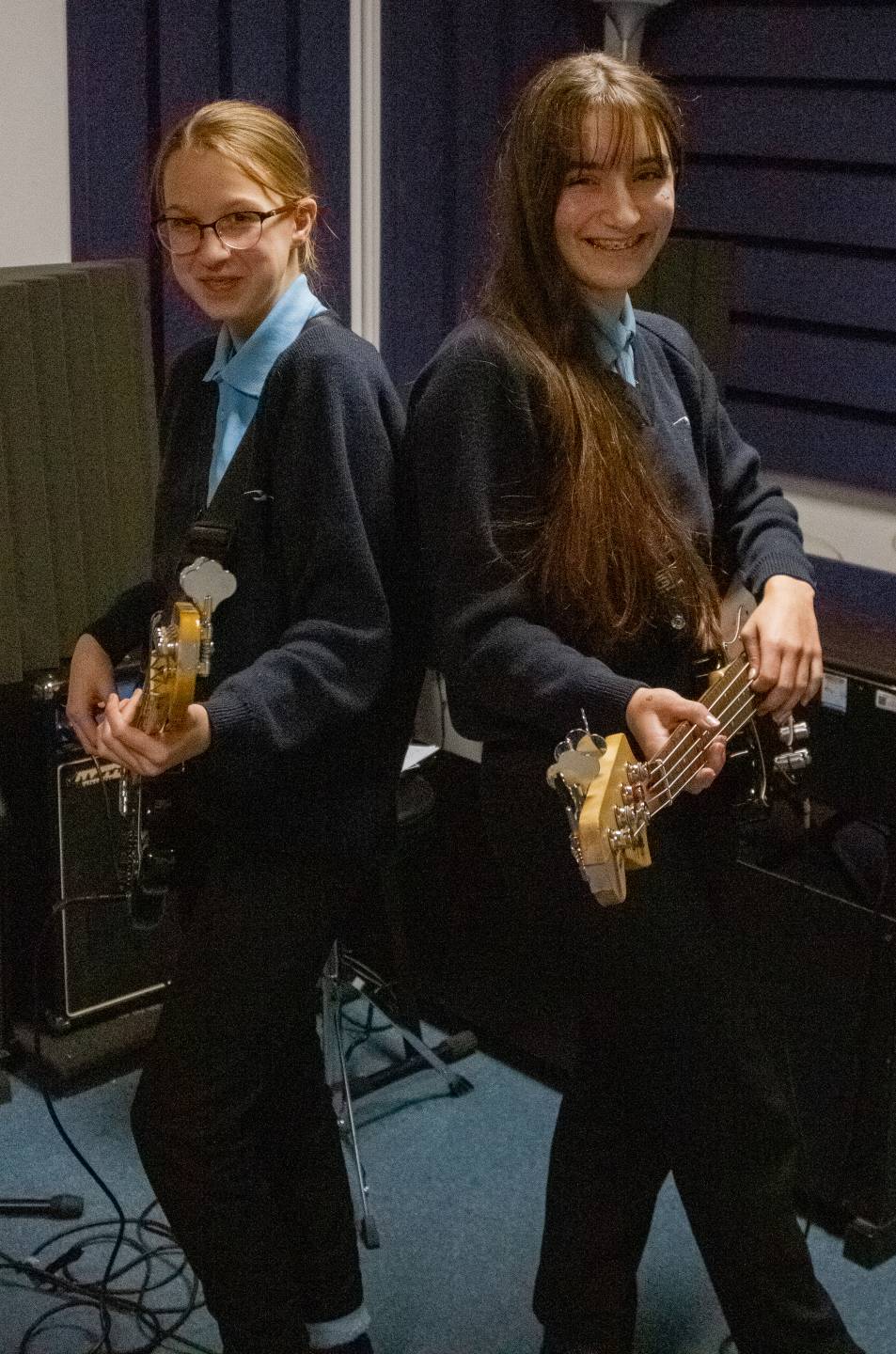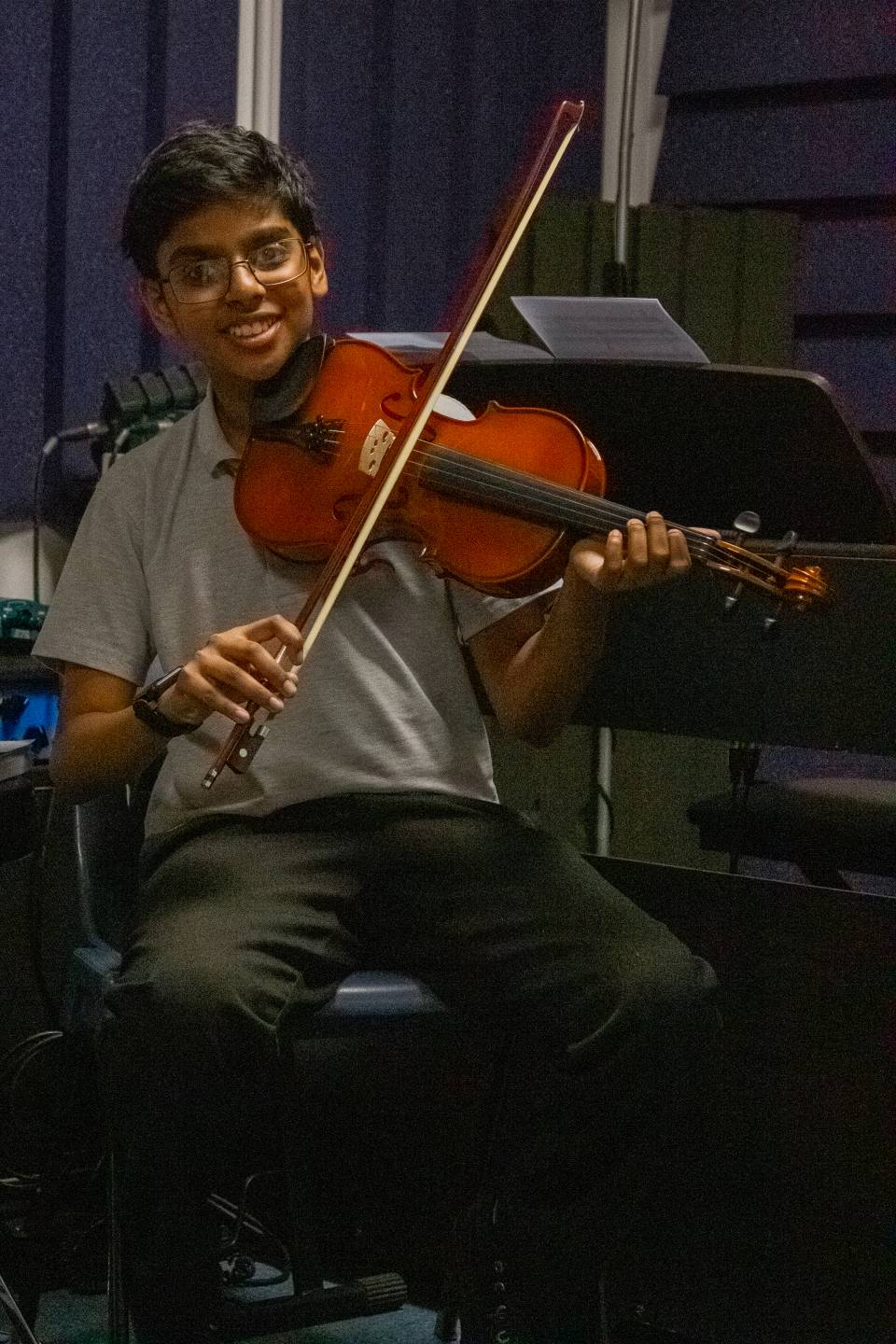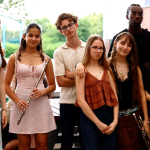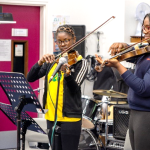Music
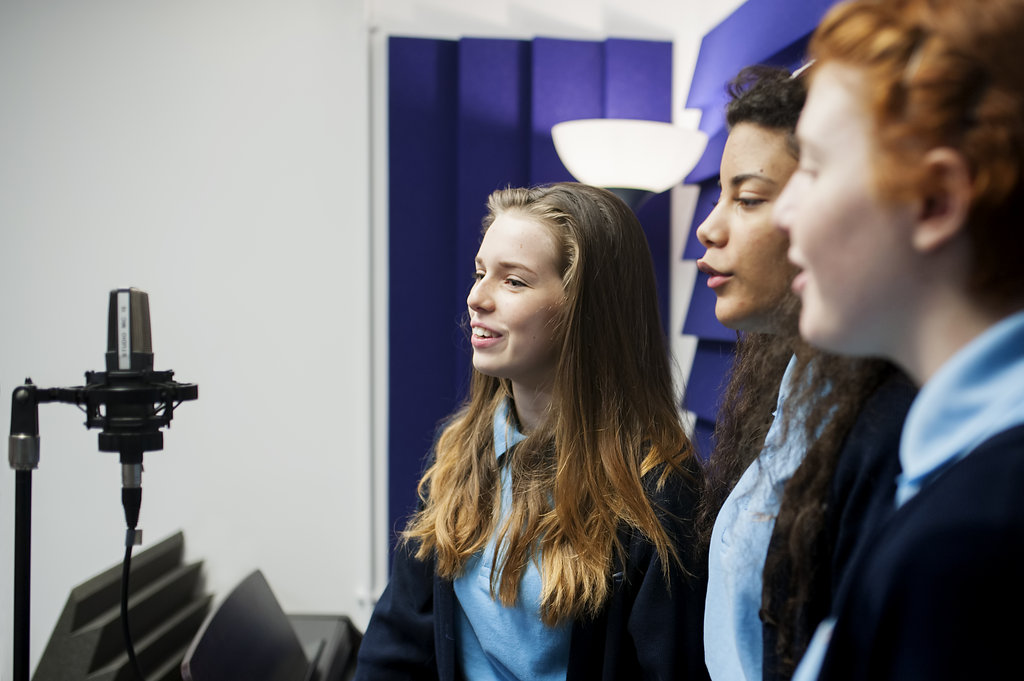
The Music department prides itself on being an active and vibrant part of the whole school community, as a result through both curriculum lessons and a broad extended-curriculum we aim to build the musical capacity of all students regardless of their ability.
The Music department prides itself on being an active and vibrant part of the whole school community, as a result through both curriculum lessons and a broad extended-curriculum we aim to build the musical capacity of all students regardless of their ability.
Listen to JRCS Christmas Single here:
Music development plan summary
Jo Richardson Community School
Overview
| Detail | Information |
| Academic year that this summary covers | 2024/25 |
| Date this summary was published | September 2024 |
| Date this summary will be reviewed | September 2025 |
| Name of the school music lead | Mr Jordan Matthews |
| Name of school leadership team member with responsibility for music (if different) | Mrs Charlotte Boulton |
| Name of local music hub | Barking and Dagenham |
| Name of other music education organisation(s) (if partnership in place) |
This is a summary of how Jo Richardson Community school delivers music education to all our pupils across three areas – curriculum music, co-curricular provision and musical experiences – and what changes we are planning in future years. This information is to help pupils and parents or carers understand what our school offers and who we work with to support our pupils’ music education.
Part A: Curriculum music
This is about what we teach in lesson time, how much time is spent teaching music and any music qualifications or awards that pupils can achieve.
|
Jo Richardson community offers a wide-ranging linear music curriculum that aims to encourage student love of music, engage them within the music curriculum and accelerate progress over time for all students. JRCS curriculum map can be found here. At Ks3 the all students receive one hour of lesson time per week. Here they study a wide variety of instrumental skills, techniques and musical styles and features. Our curriculum is differentiated so that all regardless of background or SEND status are able to access the concepts and make clear and profound progress. Further information about the schools SEN support plan can be found here: The Ks3 curriculum in a linear process with each unit building (and requiring) the skills, knowledge or language learnt in previous units. Year 7 focus heavily on the use of voice along with rhythm and pitch notation studied across various mediums along with an introduction to music technology. Year 8 takes the skills learnt and develops them further through musical analysis (listening skills) and a large composition and performance focus. Year 9 advances the listening skills gained so far whilst developing performance techniques, reading abilities and vocal work. Some of these areas are advised from the MMC some are driven by the needs of the students The school offers Graded instrumental exams throughout Peri teachers with multiple boards including but not exclusively: Rock School, Trinity and Guildhall At Ks4 we currently offer GCSE through OCR |
Part B: Co-curricular music
This is about opportunities for pupils to sing and play music, outside of lesson time, including choirs, ensembles and bands, and how pupils can make progress in music beyond the core curriculum.
|
The school is proud of its extracurricular offering, promoting a wide variety of musical opportunities for the students both in and outside of the school day. Jo Richardson offers *free* 1-1 and small group instrumental tuition available to all students. There is a variety of instruments that students choose to study inc: Piano, Bass, Guitars, Vocals, Strings, Woodwind and Brass. These lessons are either 20 or 30minutes long and operate during the school day on a rotating timetable to ensure students reduce missed lesson time outside of music. The school offers Graded instrumental exams throughout Peri teachers with multiple boards including but not exclusively: Rock School, Trinity and Guildhall There are multiple school ensembles and music extra-curricular clubs. The school offers free peripatetic instrumental lessons for students along with the school *Orchestra, *Wind band, Vocal group, Jazz Band, Ks4 bands and Music technology clubs & Keyboard clubs. These are run weekly and are free for all students to attend. (clubs marked * require a playing standard to attend) There are three annual performances opportunities – the winter and summer music nights and easter showcase along with several smaller events run throughout the year. The school musical runs every two years. Instrumental hire is available from the local music service facilitated by the school to help students rehearse at home. With set rehearsal times in the practice rooms before school at break/lunch and after school to ensure students are able to practice throughout the week to help maintain and increase progress. |
Part C: Musical experiences/Events
This is about all the other musical events and opportunities that we organise, such as singing in assembly, concerts and shows, and trips to professional concerts.
|
Jo Richardson currently offers multiple musical performance opportunities throughout the school year. There are two annual large performance concerts featuring the schools’ extra-curricular ensembles, club & group members. Here they have the opportunity to perform to parents, peers and invited members of the local community. These concerts are varied featuring an array of orchestral, jazz and rock/pop style pieces by students from all key stages. There is also one smaller showcase style performance planned for the Easter term where students get the opportunities to perform on a much smaller scale. These performers tend to be relatively new to their instruments and this is the perfect opportunity for them to further develop their performance abilities and experience. We try to encourage musical performances throughout the year including year group/key stage assemblies where appropriate. This provides the perfect celebrate the musical attributes of students with their peers. Jo Richardson runs 2 dedicated achieve days in Year9 to musical learning and experiences. Students engage with a variety of musical activities and workshops provided by both internal and external providers across a multitude of areas inc; beatboxing, rock band, Samba/African drumming, vocal workshops and more. All of these performances and experiences are completely free of charge and open to all school students. |
In the future
This is about what the school is planning for subsequent years.
|
Jo Richardson school and music department are constantly looking for ways to develop and further our offering for our students. The curriculum is always being reviewed and developed to meet the needs of the students and wider local/national musical context. Further Co-Curricular provision currently being investigated including; 1) Year 7 form trips to St Martins in the fields Lunch time concerts. 2) Introduction of further extra-curricular activities inc; production and studio club and keyboard ensemble. 3) The creation of a school album as a by-product of the ensembles and music clubs. |
The Music Department Strives to Enable All Learners To:
- Develop practical and creative music skills as an individual and through working with others
- Understand the history and development of music and its role in today’s society
- Develop an appreciation of the importance of musical cultures
- Develop students’ confidence, self-expression, creativity and imagination through the performing, composing and appraising of music
- Develop a range of instrumental skills within the classroom
- Extend their musical education and experience beyond the boundaries of the classroom
- Have the opportunity to experience being a part of a group performance, as part of a choir or music ensemble
Department Aims:
- To have high expectations of all students’ attainment and personal conduct
- To create an environment where there is an emphasis on success and potential and where all individuals and their achievements are valued and celebrated
- To develop a broad and balanced curriculum which encompasses a wide range of learning experiences and reflects the needs of the local community
- To continue to develop policies and systems to enable us to provide the best possible education for students
- To establish a team spirit amongst all the staff at JRCS and visiting instrumental staff
- To help promote JRCS in the local community in general and with primary schools
- To promote the development of outside agencies to develop the wider needs of the musical child
- To work closely with the Community Music Service and Music Education Hub to enable individual potential to flourish
Music is taught to every student from Year 7 up until the end of Year 9. Various teaching methods are used to introduce, encourage and develop musical experience. We try to let students make music as much as possible. All work is recorded, either on video or as an audio file. All students learn how to evaluate and create music with plenty of opportunity to develop their performance skills.
Our performance, composition and listening activities include music from different national and cultural traditions, including world music, classical music, rock, blues, contemporary and 20th century popular music, music for film and television.
| Year 7 | Year 8 | Year 9 |
|
Musical Bridges Baseline Listening Assessment The Orchestra – Black History Month Focus |
Pentatonic Improvisation through Jazz Introduction to the 12-bar Blues The Piano and Female Composers – Black History Month Focus |
Pentatonic Improvisation through Jazz Introduction to the 12-bar Blues Jazz Performance and the BBC Young Jazz Musician of the Year Award – Black History Month Focus |
| Keyboard Skills | Keyboard Skills | Sonic Branding and Composing with Technology |
|
Keyboard Skills World Rhythms |
Keyboard Skills Programme Music |
Rock Music and Guitars |
| Programme Music | Orchestral and Sequenced Film Music | Pop Bands, Live Music Events and Music Publishing |
| Theme and Variation |
Right to Write – Film Music Western Classical Piano Music: Mozart; Beethoven; Chopin |
Song Writing Ground Bass and Remix Right to Write – Pop Songs |
| Brazilian Samba | Western Classical Piano Music | Sequencing Pop Songs |
Homework
Music homework is set when relevant to lesson content. This may take the form of some written work, some research, or alternatively, some rehearsal. It is widely accepted that not all homes will have access to some of the instruments we use, however if practical homework is set, pupils are expected to find time during their breaks, or after school to come into the Music department and use the facilities we have here. Students who are learning an instrument are always encouraged and expected to practice in their own time.
At Key Stage 4 we follow the OCR J536 specification, and currently have 27 students in Year 10 and 35 in Year 11. Students are supported through the instrumental provision and during the summer term in Year 9 those students showing an interest in studying music at GCSE level are given the opportunity to start instrumental lessons.
Course Content – Areas of Study
- My Music: perform a piece on your chosen instrument and compose a piece of your own choice to a brief.
- The Concerto Through Time: study the development of the concerto from 1650 to 1910. Learn how different composers use musical elements and compositional devices in their concertos.
- Rhythms of the World: study different styles of music from a range of traditions that include the music of India and Punjab, the Middle East, Africa and South America.
- Film Music: develop an understanding of how music can be used to create mood, convey stories and enhance action through the study of Film Music. Understand how composers use music dramatically and expressively through a variety of musical elements and compositional devices.
- Conventions of Pop: Study music from 1950 to the present day, focussing on; Rock ‘n’ Roll of the 1950s and 1960s, Rock Anthems of the 1970s and 1980s, Pop Ballads of the 1970s to 1990s and solo artists from 1990 to the present day.
Skills you will develop include:
- To become a more informed performer
- To become a more skilled composer
- To become a more understanding listener
Assessment
- 60% coursework
- 40% final exam
During the course you will prepare two performances and two compositions (together worth 60%). These will be recorded on CD in the studio, internally assessed and externally moderated.
The final exam is a listening exam (worth 40%) which lasts up to 1 hour 30 minutes. It will take the form of multiple choice, short answer questions, and structured questions.
Careers and further study
Students gaining grade 9 – 4 could possibly move on to the further study of A/AS level Music or Music Technology and can also progress to study Level 3 BTEC Music.
The study of music uses a variety of skills that can be transferred to many different jobs or professions and it is a stimulating course in its own right!
Homework
All students who receive instrumental or vocal tuition automatically have homework because of their commitment to practising. One third of the marks at GCSE are awarded to performing and many pupils rehearse with others out of school to try to improve their performances. The coursework of the composing area of the exam requires onward-going skills in compositional techniques and a tape to be presented by the examination deadline. Some of this work is completed as homework.
Students will also undertake research and written homework’s at times when this is appropriate.
Waiting for clarification
Feedback in Music
| Live Feedback in Class | Feedback on Work Seen in Books | Marking |
|
Feedback is shared with students during music lessons, using a range of strategies dependent upon the task: – Verbal feedback on practical tasks – Peer assessment – ‘Spotlight checks’ on student work with immediate feedback provided – Modelling both best practice and common misconceptions in computer-based compositional work, through projecting students’ work on the whiteboard in real time at KS3 and KS4. This also develops students’ confidence in having others hear their work in development – Best practice and common misconceptions shared with students through the use of a bank of statements relevant to specific tasks. Students are directed to note specific statements in their exercise book. – Visualiser used to model best practice and share this with the whole class, where relevant, particularly at KS4. |
At KS3, exercise books are used as a tool for students to collate information that will be relevant for revision purposes, to demonstrate their understanding of concepts covered and to log key musical terms and phrases.Verbal feedback on book work will be provided collectively to the class, and at times, written directly into books.
At KS3, students will be given the opportunity to write relevant common misconceptions and corrections into their exercise books, based upon end of unit assessments.
At KS4, exercise books are used as at KS3, but also to develop their theoretical and analytical skills in music. Teachers will provide timely feedback on common misconceptions in exercise books, as well as students making their own notes when necessary. Formative feedback by way of comments is continually provided in the ‘notes’ section of the software for composing (GarageBand).
|
Correct work in classwork and homework may be acknowledged or ticked to encourage students that staff are actively engaging with their written work.
Verbal feedback will begin to link to the assessment language of the school reporting system (emerging, developing, secure etc), as we approach the data entry window at both KS3 and KS4.
Practical coursework marks (‘working towards’) will be shared with students at KS4 as they complete significant solo and ensemble performance activities in years 10 and 11, and as they completed composition work towards the end of year 10, mid-way through year 11, and by April of year 11.
Practice and mock papers will be marked by teachers and specific guidance given on areas of misconception. |
Staff from Music
Cummings, K
Music & HR Admin Assistant
Jenner, K
Teacher of Music & Director of Performance
Matthews, J
Head of Music
Samuels, M
Music Technician
If you have any queries or concerns, please do not hesitate to contact the school office on 020 8270 6222 or contact the Head of Music, Miss J Hurst at jhurst@jorichardson.org.uk



